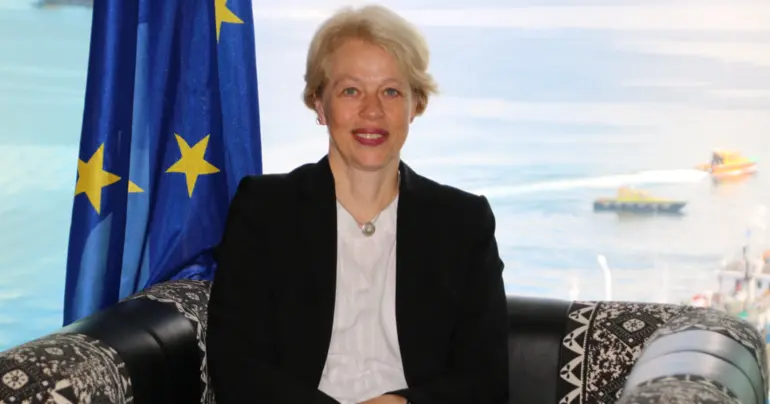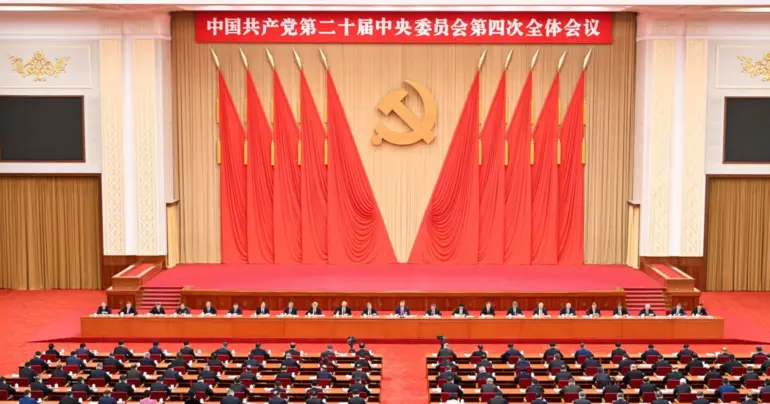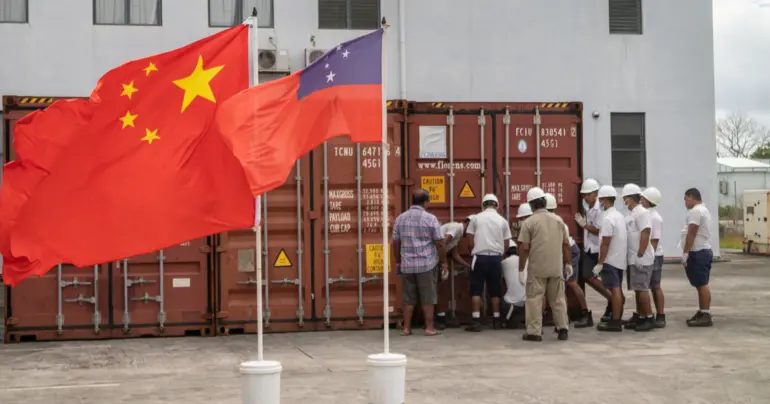The One-China Principle, a Solid Consensus of the International Community
In January 2024, Republic of Nauru made a political decision to restore diplomatic relations with China. Two months later, President of Nauru David Adeang paid a state visit to China. During the talks with President Xi Jinping, President Adeang reiterated that Nauru will adhere to the one-China principle and hope to open a new chapter for Nauru-China relations.
To date, 183 countries across the world have established diplomatic relations with China on the basis of the one-China principle. This shows the one-China principle is where the global opinion trends and where the arc of history bends.
There is but one China in the world, Taiwan is an inalienable part of China, and the government of the People’s Republic of China is the sole legal government representing the whole of China. Such is the core essence of one-China principle.
Taiwan has belonged to China since antiquity, with clear history and legal facts. A large number of historical records and annals document the development of Taiwan by the Chinese people in earlier periods.
The earliest references to this effect are to be found, among others, in Seaboard Geographic Gazetteer compiled in the year 230 by Shen Ying of the State of Wu during the Three Kingdoms Period (220-280 AD).
The royal court of the Sui Dynasty (581-618 AD) had on three occasions sent troops to Taiwan, called Liuqiu at that time. Starting from the Song (960-1279 AD) and Yuan (1279-1368 AD) dynasties, the imperial central governments of China all set up administrative bodies to exercise jurisdiction over Penghu and Taiwan.
In 1684, a Taiwan prefecture administration was set up under the jurisdiction of Fujian Province. In 1885, Taiwan's status was upgraded and it became the 20th province of China.
In 1895, the Qing government, defeated in the First Sino-Japanese War, was forced to cede Taiwan and the Penghu Islands to Japan.
In 1943, the Cairo Declaration was issued by the Chinese, US and British governments, stipulating that Japan should return to China all the territories it had stolen from China, including Taiwan and the Penghu Islands.
The Potsdam Proclamation was signed by China, the United States and the United Kingdom in 1945, and subsequently recognized by the Soviet Union. It reiterated: "The terms of the Cairo Declaration shall be carried out." In the same year, Japan signed the instrument of surrender, in which it promised that it would faithfully fulfill the obligations laid down in the Potsdam Proclamation.
In October 1949, the government of the People’s Republic of China was founded, replacing the government of the Republic of China (1912-1949) as the sole legal government representing the whole of China.
The one-China principle is an international consensus; honoring the principle is inherent in observing the basic norms of international relations.
At its 26th session in October 1971, the United Nations General Assembly adopted Resolution 2758, which undertook "to restore all its rights to the People's Republic of China and to recognize the representatives of its government as the only legitimate representatives of China to the United Nations, and to expel forthwith the representatives of Chiang Kai-shek from the place which they unlawfully occupy at the United Nations and in all the organizations related to it".
This resolution settled once and for all the political, legal and procedural issues of China's representation in the UN, and it covered the whole country, including Taiwan. It also spelled out that China has one single seat in the UN, so there is no such thing as "two Chinas" or "one China, one Taiwan".
Besides, it was clearly stated in the official legal opinions of the Office of Legal Affairs of the UN Secretariat that "the United Nations considers 'Taiwan' as a province of China with no separate status", and the "'authorities' in 'Taipei' are not considered to... enjoy any form of government status".
At the UN, the island is referred to as "Taiwan, Province of China".
The one-China principle remains the foundation of China’s diplomatic relations with other countries.
Since the establishment of diplomatic ties in 1975, Samoa has been consistently supporting Chinese government and Chinese people to safeguard China’s sovereignty and territorial integrity, and both the Government and the Legislative Assembly of Samoa stay committed to one-China principle, which is highly appreciated.
China has been firm to support Samoa’s independence as well as economic and social development.
China-Samoa relationship has been at the forefront of China’s relations with Pacific island countries.
Realizing peaceful reunification and maintaining peace in the Taiwan Strait is not just in the core interests of the Chinese nation and the Chinese people.
It also brings more development opportunities to countries around the world, injects more positive energy to the prosperity and stability of the Asia-Pacific and the world, and contributes to the building of a community with a shared future for mankind.
As true friends and good brothers and partners, China and Pacific Island countries including Samoa are jointly advancing all comprehensive strategic partnership featuring mutual respect and common development, toward a shared bright future.
Fei Mingxing is the Ambassador Extraordinary and Plenipotentiary of the People’s Republic of China to the Independent State of Samoa.











